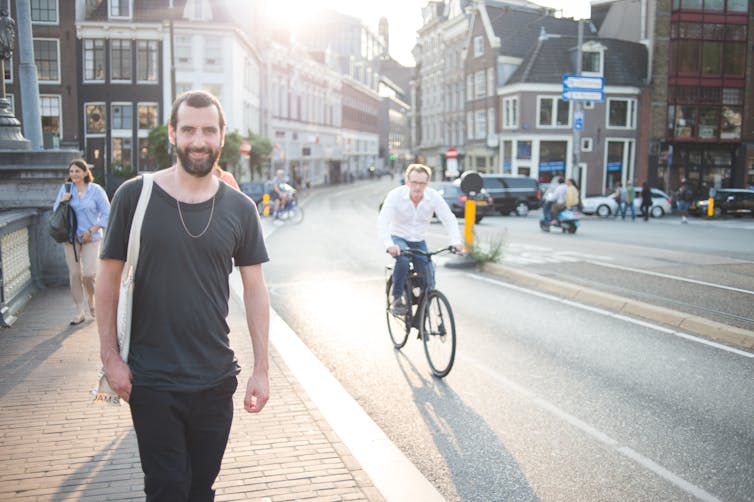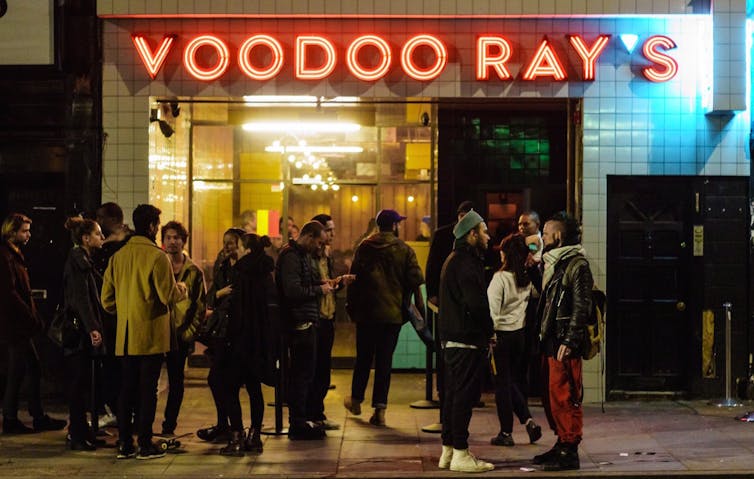Sadiq Khan, the mayor of London, recently announced the identity of the city’s first ever “night czar”. Amy Lamé, a British television and radio personality, was the successful candidate of a competition that garnered hundreds of applicants. She will earn a £35,000 salary, working two-and-a-half days a week, to promote London’s nightlife and champion the city’s £26.3 billion night-time economy.
This move will fulfil one of Khan’s key election pledges, to support nocturnal venues and cultural industries. Lamé’s appointment also plays into the mayor’s #LondonIsOpen campaign, designed to show the world that London remains entrepreneurial, international, and welcoming to the creative industries. Khan has based the role on a model pioneered in Amsterdam: the office of “nachtburgemeester” – literally, a night mayor.
Amsterdam elected its first night mayor in 2003, at a time when the city’s famed nightlife was widely perceived to be in decline. The position was created by a coalition of night-time industry representatives and local government officials, to mediate between different interest groups and advocate for the night-time economy.
The current night mayor of Amsterdam, Mirik Milan, was elected in 2012. A club promoter and outspoken supporter of urban nightlife, Milan contributes to the policies which affect the city’s night-time economy. So far, he has successfully campaigned for 24-hour licenses (introduced in 2013) and positioned himself as the face of urban nightlife in the media; he is often called on to represent the producers and consumers of nocturnal culture.

Milan has effectively advocated for his position, encouraging other cities around the world to create similar roles – he even hosted a global conference about night mayors earlier this year. And it seems to be working; over the past few years, the concept has gone global. Paris, Berlin, Sydney, and now London, all have night mayors, as do Zurich and Shibuya, part of Tokyo.
The success of the night mayor – in any given city, and as a global phenomenon – rests on the capacity for a bustling urban nightlife to boost the local economy, by keeping people spending for longer. Vibrant nightscapes have also become a mark of cultural status for global cities. As Milan argued, they can be used to attract tourists, workers and international students.
Building bridges
The role is also about building coalitions and consensus around divisive issues. Nightclubs are often blamed for social problems, ranging from noise pollution, to anti-social behaviour and illegal drug use. The recent closure of Fabric – an iconic London nightclub with a global following – is a case in point: despite opposition from the public, its license was revoked by the local council, following a review into two drug-related deaths at the venue over the summer.
Fabric is simply the most recent victim in a series of high-profile closures. In the last decade, the number of nightclubs has nearly halved. But punitive regulation is not the only factor: gentrification presents another increasingly serious threat to the economic viability of nightclubs, with rising property values driving up rents.

Yet managing a growing global city at night also has much to do with service provision, infrastructure flexibility, cultural sensibility and urban safety. As the Greater London Authority (GLA) itself admits, demand for night-time travel is on the rise, with late night tube usage is increasing at double the rate of daytime trips (over 170% since 2000).
While the mayor’s office and the GLA may have come out in support of London’s nightlife and nocturnal culture, they will need to work alongside Lamé toward building a far broader consensus. For instance, licensing falls within the jurisdiction of London’s boroughs, so local councillors will need to be brought on board. Protecting nightlife venues requires bringing diverse, and sometimes hostile, parties to the table. Appointing a night czar is a start – but it may take more than that to nurture London’s nightlife.

